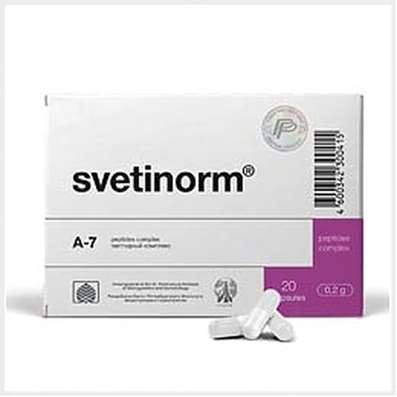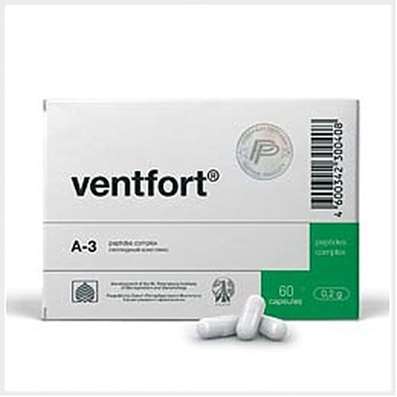Cardiovascular Dystonia
02 Nov 2016
Neurologist Dr. Doping tells about the autonomic nervous system, psycho-vegetative syndrome and diagnostic difficulties.
Vegetative dystonia, Cardio-vascular dystonia or vegetative dystonia syndrome, and neurological perspective on this issue. The autonomic system and, accordingly, its violation lurking in this term, has a number of structural elements of the organization: the central link, the so-called segmental, segmental and peripheral units. Accordingly, autonomic dystonia divided into the following components syndrome - a psycho-vegetative syndrome, autonomic insufficiency syndrome, syndrome angiotrophopatic. What is it and what do you eat?
Angiotrophopatic syndrome - is, in fact, the peripheral autonomic nervous system lesions that appear in the background of some other co-morbidities. This diabetes, infectious diseases, neurological disorders accompanied by pain syndromes such as complex regional pain syndrome, is a systemic disease in which necessarily visible, noticeable and is subject to the treatment of the underlying disease.
Autonomic failure - it is also largely a condition manifested more important systemic disorders. That is a decrease in cardiac rhythm when changing body position, it is possible decrease in blood pressure when sudden change in body position, such as standing up, without the pain of heart attacks until, unfortunately, the sudden nocturnal death syndrome. It develops mostly in elderly patients on the background of some neurodegenerative diseases or is a consequence of the current status or the current condition in which the subject underlying disease treatment.
Now about psycho-vegetative syndrome. The syndrome vegetative dystonia was formulated in the 70s, maybe even a little earlier as a syndrome, not as some sort of condition. And his study was completed by the fact that the autonomic system - a stand-alone system, to do what is beyond our will. Regardless of my will is the respiration rate, heart rate, vascular tone, and many of the processes aimed at maintaining homeostasis, to increase so-called catabolic or anabolic processes, which are aimed at maintaining the body's homeostasis and survival. It is part of the autonomic nervous system.
Great interest in this has been a long time, and in the second half of the last century has been active use and study of autonomic reflexes, depending on a given situation. Then there was a whole laboratory based on the first honey in the department of nervous diseases, which was engaged in the autonomic nervous system, under the control of Alexander M. Wayne. Then there was formulated a theory that autonomic failure, and autonomic dystonia syndrome - it is only a syndrome, that is a secondary condition. Such changes, or similar disorders now engaged neurologists, faced with this general practitioners, cardiologists, internists and psychiatrists.
What is, strictly speaking, substrates? Why autonomic failure, a so-called segmental, or loss of peripheral units - a purely neurological work, but psycho-vegetative syndrome, segmental or defeat - it's a big mystery?
Unfortunately, in real life, often in the scientific life there is the term "vegetative dystonia", with which we began. What does this mean? Autonomic reactions, vegetative response to some external stimulation. This stimulation can be anything, ranging from stress factors, ending the weather conditions change in some internal state of homeostasis, exercise and so on.
What is the reason? Suprasegmental system, which deals with autonomic management, autonomic system, autonomic innervation, - a system which has very strong ties and contacts with the systems responsible for motivation, emotion and all the emotional substratum of all our reactions. It is the relative area of the brain is responsible for our emotions, fears, desires, motivation and so on. If their violation is required to run some autonomic symptoms.
The downside syndrome vegetative dystonia, which is studied by neurologists, and, unfortunately, is now often treated by neurologists - is the lack of proper diagnosis.
Because when first taken out syndrome, in contrast to the failure of autonomic disorders and angiotrofopaticheskih where secondary autonomic disorders in the apparent disease, vegetative dystonia syndrome is often the leading diagnosis, there is searched for a reason for this.
According to the report of the Commission on psychiatric health, 26% of the population in prosperous Europe has a mental illness and requires monitoring. Prevail in the structure of diseases anxiety disorder and depressive disorder. General statistics on Russia or Moscow, I have not met, but for a variety of publications by 25% of patients have a similar condition. I must say that often these patients just complaints related vegetative disturbances, that is manifested various palpitations, pains of various localization, nonlocalizability sensations, general asthenic complaints: complaints of weakness, the overall malaise, a feeling of dissatisfaction with sleep, feeling of lack of rest during the time available to rest, inability to sleep, - complained of the presence of some overvalued ideas, the presence of migratory uncomfortable sensations in the end, the presence of physical symptoms that have no physical evidence - are examples of fairly complex patients who are often on the receiving GP did not receive proper diagnosis by the fact that hide behind a diagnosis of vegetative dystonia.
The same psycho-vegetative syndrome is mostly just a consequence of some emotional disturbance, as I said, most alarming, or depressive disorders range. Personality characteristics of these patients - a change in the threshold of sensations, that is, and as a result the patient complained of a much more significant than they are for each of any normal person. Do you have a numb arm or my hand? Yes, numb, but I'll say it quietly, because I know that it happens, I know that it goes through. A man with a depressive or anxiety disorder is much more important to take this complaint, it will be one of the major sensations, it will not leave him, accordingly, it is with this complaint will not leave the doctor. And if with it numb hand will not leave a neurologist, which, in principle, to the psychiatrist it is sometimes a little bit to go, just to the neighboring office, then, if we are talking about cardiology, gastroenterology and doctors somatic specialties, this is a very extensive expensive test, long search drugs, and, according to statistics, which often issue of psychiatric experts, 80-90% of patients with anxiety or depressive disorders, with the dominant somatic disorders receive their diagnosis within 8-12 years after the onset of the complaints are not received, of course, at the same time proper treatment, did not give a proper survey and give the development of distrust of physicians and health care in general.
What all of this are the substrate - only whether psychiatric or some morphological too? Surprisingly, but the further we move on to the study of anatomical and biochemical substrates, the more we begin to lose. In fact, about a hundred years ago, such a condition, such as epilepsy, treated with psychiatrists, it was considered a mental illness. Currently, those involved neurologists. Dementia, or dementia, too, at one time been treated by psychiatrists, it is now engaged to a lesser extent, psychiatrists, neurologists are more specialized centers. Another thing is that the diagnosis of the organizational moments - it's still a mental inheritance, as it is a question of capacity and incapacity of the person. So, many of somatoform or some mental reactions must now be examined and treated by psychiatrists.
Often medicational choice in this case are not any or psycho-stimulants, relatively speaking, vitamin, vascular or nootropics and drugs that increase the adaptive process - is antidepressants various groups may be modified if perception is neuroleptics. However, morphological changes it has, change the threshold of perception - it neurochemistry, rather deep, powerful and, most importantly, even having a certain hereditary roots. (For example, Meldonium, Mexidol, Phenibut, Cerebrolysin).
It proves a definite genetic link, predisposing certain level of response to external stimuli.
This reaction to external stimuli can be transmitted as a suspected genetic or by environmental mechanisms. If we are in a single environment perceive this or that tradition to respond to any external factors, then, of course, the man raised in a particular environment, will inherit this tradition and will continue to spread.
Currently relevant is a slight change in the organization of assistance to these patients, the diagnosis is considered to be unlawful as a vascular encephalopathy syndrome and unlawful arrest of diagnostic search in the formulation of this syndrome. And the future, perhaps, is the development of a neurochemical direction in finding a substrate that can be removed, and the adequate development of certain schools of psychotherapy, which will change the perception, if not, what to do with this perception.

 Cart
Cart





